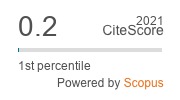Hate Speech and Reality Check Analysis of Disaster Tweets using BERT Deep Learning Model
DOI:
https://doi.org/10.17762/msea.v71i2.2251Abstract
This study looks into the application of the BERT model for a reality check analysis of disaster-related tweets. The project intends to tackle the problem of authenticating information on natural disasters posted on social media, which is frequently inaccurate or misleading. Modern natural language processing models like the BERT model have shown promise in various language understanding tasks. The "Disaster Tweets" dataset, which includes tweets linked to genuine disasters and tweets unrelated to disasters, is used in the study to assess the performance of the BERT model. A fine-tuning method is used to train the BERT model on the training set after dividing the dataset into training and testing sets. The model is then put to the test on the test set, and its performance is assessed using metrics like accuracy, precision, recall, and f1-score.
The experimental findings show that the BERT model performed well overall in categorizing tweets about disasters. The model performed well for both groups, with somewhat superior performance for tweets about actual disasters, according to the criteria of precision, recall, and f1-score. According to the accuracy metric, the model's overall accuracy was 86%, which is a promising outcome. The BERT model's potential uses in disaster response and management are also covered in this essay. The model can be used to track down false information about catastrophes, estimate the severity of damage caused by disasters, plan response activities, and create predictive models for future disasters. It can also be used to gauge the sentiment of tweets about disasters. The BERT model must, however, be used in a manner that takes into account a number of issues, including data quality, generalizability, computational resources, interpretability, and ethical considerations.
Overall, this research emphasizes the significance of utilizing NLP approaches to validate the veracity of catastrophe-related information published on social media and enhance disaster response and management initiatives. The BERT model is a useful instrument for reaching this objective, but more investigation is required to solve the model's difficulties and constraints and guarantee its efficacy and dependability in a range of situations.




